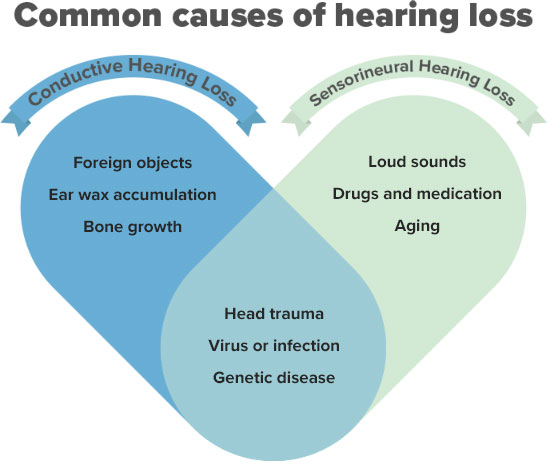Other types of hearing loss
There are other ways to describe hearing loss types. For example:
- High or low-frequency: Indicates whether you are unable to hear high or low-pitched sounds (i.e. high frequency hearing loss means you cannot hear high-pitched sounds)
High frequency hearing loss
Low frequency hearing loss
- Unilateral or bilateral: Indicates whether one (unilateral) or both (bilateral) ears are affected by hearing loss.
Bilateral
Unilateral
- Progressive or sudden hearing loss: Indicates whether the it happens quickly or gradually over time.
- Acquired or congenital: Indicates whether your hearing was present at birth or acquired at a later stage in life.
Ear Infections and Hearing Loss
Ear infections can result in hearing loss as they can cause
harm to the delicate structures within the ear. This hearing loss is most often
temporary but can be permanent in some cases.
Ear infections can affect either the outer, middle or inner ear or any
combination of the three. One important component affected by severe infections
or loud noises is the auditory nerve, responsible for transmitting sound signals
to the brain. Disruption of this transmission can lead to impaired hearing.
Moreover, prolonged exposure to loud sounds has the potential to cause
irreversible noise-induced hearing loss by damaging the sensitive hair cells in
the inner ear. To address hearing loss caused by ear infections, nerve damage,
or loud sounds, it is crucial to select the appropriate hearing aids.










